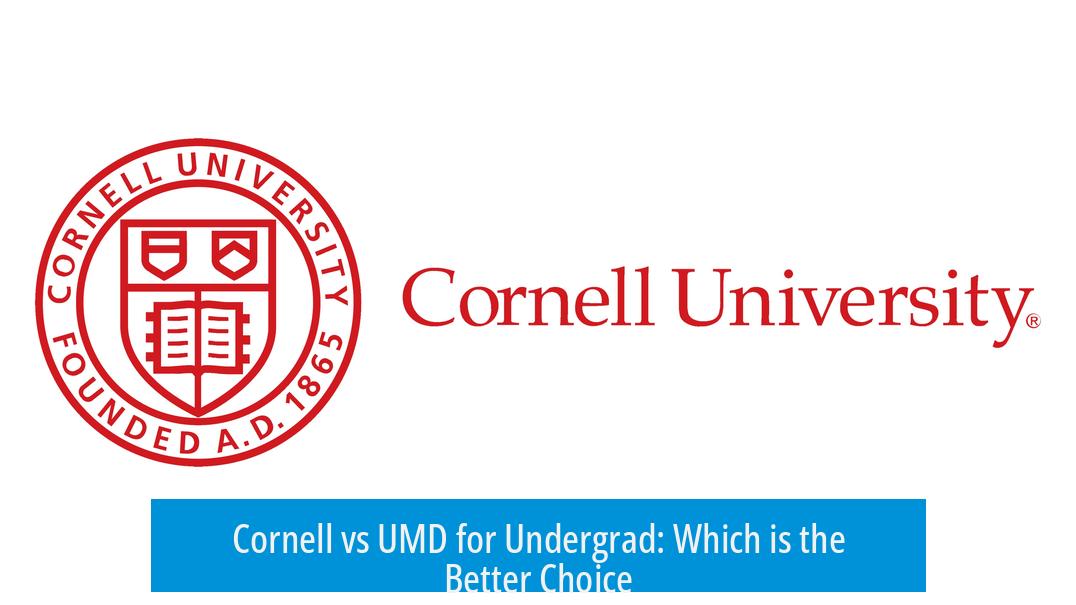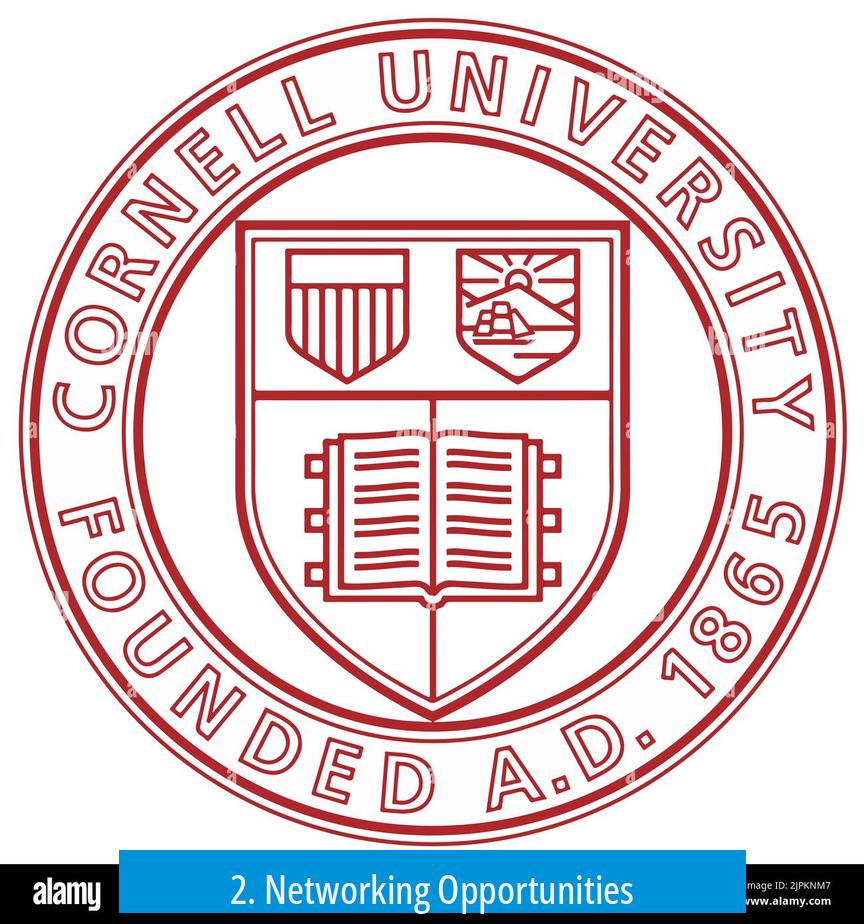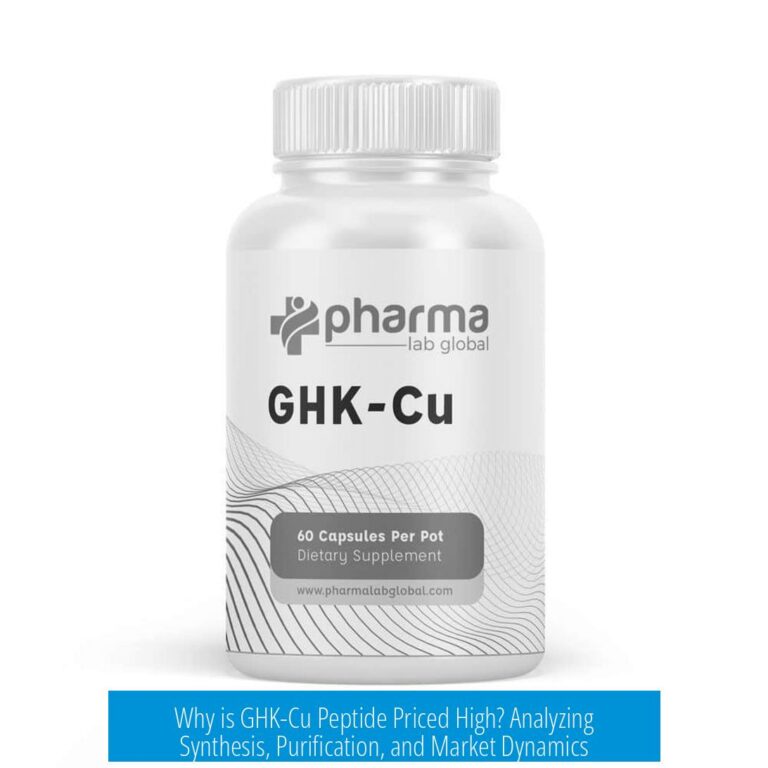Cornell vs UMD for Undergrad: Which is the Better Choice?

Choosing between Cornell University and the University of Maryland (UMD) for an undergraduate degree depends heavily on financial, academic, networking, and personal factors. A key consideration is that UMD offers a near-full ride with strong research opportunities, while Cornell provides Ivy League prestige and a powerful alumni network. Ultimately, the best choice aligns with your goals, budget, and intended career path.
1. Financial Considerations
Cost plays a crucial role when deciding between Cornell and UMD for undergrad.
- UMD often provides near-full scholarships for qualified students. This option minimizes debt and financial pressure.
- Cornell, being Ivy League, tends to have higher tuition unless you secure competitive financial aid. This may result in significant debt.
- Choosing the economical option of UMD can create financial security, letting you build a savings cushion before grad school.
- Paying less for undergrad allows more time and resources to invest in experiences beyond coursework, which may be more valuable than a prestigious school name.
In summary, if your decision is primarily between paying full price at Cornell or getting a substantial scholarship at UMD, UMD may be the smarter financial choice.
2. Networking Opportunities

Cornell offers access to an Ivy League alumni network. This network might open doors in certain industries and graduate schools.
However, the value of such networks depends on availability and effort given to engage with them. Students working extensive hours to afford tuition might find little time to utilize networking benefits fully.
At UMD, students can build strong connections by joining professional organizations and connecting with alumni. This approach diversifies the network beyond a single institution.
3. Academic and Research Experience
This area is critical for students eyeing careers in molecular biology or research-related fields.
| Factor | Cornell | UMD |
|---|---|---|
| Research Opportunities | High-level Ivy League projects; competitive entry | Strong R1 research programs; accessible opportunities |
| Faculty Engagement | Renowned professors but competitive access | Supportive professors with rigorous courses |
| Paid Internships | Available; may be competitive | REU programs and other paid internships common |
UMD, as an R1 institution, provides strong research chances and quality mentorship. A graduate of UMD attests to the institution’s rigor and preparation for top graduate programs.
The university’s environment encourages obtaining meaningful letters of recommendation and hands-on experience, crucial for grad school admissions. These outcomes are often more impactful than mere university prestige.
4. Career Outlook and Degree Value
For molecular biology careers, graduate education beyond the bachelor’s degree is standard.
The undergrad institution’s name is less important than performance in courses and research involvement.
- Good grades and meaningful lab experience weigh heavily for grad school admissions and job prospects.
- Lower debt from a state school reduces pressure and broadens options for graduate education career paths.
- Some alumni of state schools have successfully entered top molecular biology PhD programs.
5. Personal and Cultural Considerations
Student experiences vary beyond academics. Personal preferences and campus culture influence satisfaction and success.
- UMD embraces a large, vibrant student body with a reputation for parties and sports culture. Some find it lively; others find downsides in athletics performance.
- Cornell’s Ivy League status brings prestige but also potential social pressures and controversies in admissions that some find off-putting.
- Students often reevaluate their goals and environments during undergrad, so adaptability matters more than initial choices.
Summary of Key Takeaways
- UMD offers an economical path with near-full scholarships reducing debt.
- Cornell’s brand may open prestigious networking opportunities but often comes with high cost.
- Both schools provide quality research and academic experiences, especially important for molecular biology.
- Success depends more on what students do during undergrad—achieving good grades, research, and internships—than where they attend.
- Financial security early aids mental focus and flexibility for grad school or career moves.
- Personal fit and lifestyle at each campus influence overall undergraduate satisfaction.
1. Is it worth paying more for Cornell’s name over a full ride at UMD?
The financial difference matters. A full ride at UMD can save you from debt. The name on your diploma is less important than your grades and experience. Avoiding debt helps you focus on future goals.
2. Does Cornell offer better networking opportunities than UMD?
Cornell has a strong Ivy League network, but you must have time to use it. UMD students can build networks through alumni and professional groups too. Networking is more about effort than school prestige.
3. Will UMD provide good research opportunities for molecular biology undergrads?
Yes. UMD is an R1 university with strong research options. Students can get valuable experience and solid letters of recommendation. Paid internships like REUs are also available to enhance your resume.
4. How important is the undergrad school name for a career in molecular biology?
For molecular biology, graduate degrees matter more than the undergrad school’s name. Good grades and lab experience are critical. The degree’s value depends more on your work than the university prestige.
5. How do personal and cultural factors compare between Cornell and UMD?
UMD has a large campus with a lively social scene. Some dislike Ivy League controversies, which may affect Cornell’s appeal. Your preferences and potential changes in interests during college are important factors.





Leave a Comment